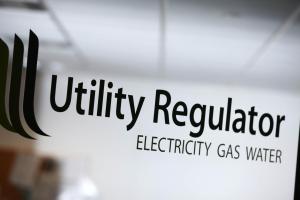
The Utility Regulator has concluded its review of the regulated domestic tariff for Power NI. The review has determined that a 4% increase (£38 per year, or 73 pence per week) is needed. This increase will come into effect on 1 December 2024.
Leigh Greer, Head of Security of Supply and Markets Regulation at the Utility Regulator, explains:
“Last month, the Utility Regulator commenced a review of Power NI’s regulated domestic electricity tariff. Following our analysis, we have agreed that a 4% increase, equivalent to £38 per year, is needed. This will be effective from 1 December 2024.
“The main reason for this tariff change is due to an increase in costs related to the market and operation of the electricity network. As we continue to strive to meet government climate change targets, and to ensure security of supply, there has been a need to invest in grid infrastructure to facilitate renewable energy sources.
“In addition, we have seen significant increases in wholesale gas costs globally as a result of the ongoing conflicts in the Middle East. Wholesale gas prices affect the cost of electricity because 45% of electricity is generated with gas-fired power stations.
“The average price of regulated electricity for households in Northern Ireland is around £80 cheaper per year than in Great Britain, and around £180 cheaper than in Ireland. The table below shows the average annual bill comparison between Northern Ireland’s regulated gas and electricity prices with Great Britain and Ireland from 1 December 2024.
| Average annual bills from 1 December 2024 | Power NI (electricity) and SSE Airtricity (gas, Greater Belfast and West) | Power NI (electricity) and Firmus Energy (gas, Ten Towns) | Great Britain (Price cap) | Ireland |
| Electricity | £989 | £989 | £1,070 | £1,167 |
| Gas | £1,079 | £1,151 | £920 | £1,359 |
| Total | £2,068 | £2,140 | £1,990 | £2,526 |
Note: Figures above based on the annual bill of a domestic customer consuming 12,000 kWh of gas and 3,200 kWh of electricity on the standard tariff.
“We recognise that many households and businesses are continuing to struggle with their energy costs, especially as we come into the winter months. If you are worried about paying for your electricity or gas, there is help available. We would encourage you to contact your supplier in the first instance, to make them aware of your circumstances, and discuss the options available. There are also a number of agencies who can provide free and independent advice to households, including Advice NI, Christians Against Poverty, the Consumer Council and Money and Pensions Service’s MoneyHelper.
“There has been an overall increase in energy costs over the past couple of years and we continue to see a lot of volatility in the market. However, if wholesale prices do begin to reduce, our system of regulation allows us to ensure reductions are passed onto consumers as quickly as possible.”
This tariff announcement marks the conclusion of a review undertaken by the Utility Regulator and Power NI, in consultation with the Department for the Economy and the Consumer Council for Northern Ireland.
A briefing paper on the tariff review has been published.
Further information
Media contact - Adele Boyle on 07787 279584.
The bill comparison with GB is based on annual consumption of 12,000 kWh of gas and 3,200 kWh of electricity, on the standard credit tariff.
The bill comparison with Ireland is based on annual consumption of 12,000 kWh of gas and 3,200 kWh of electricity, on the standard tariff. The exchange rate used for comparison is 0.85 and VAT rate is 9%.
The Power NI tariff review covers around 508,000 domestic electricity customers. This increase for Power NI follows a 6.3% decrease in April 2024 and a 7.1% decrease in July 2023.
The Consumer Council’s website has energy advice for consumers and also provides an independent energy price comparison tool to help consumers save money.
A number of agencies can provide free and independent advice, including Advice NI, Money and Pensions Service and Christians Against Poverty.
In September, we published an information paper on the Regulated Entitlement Values.